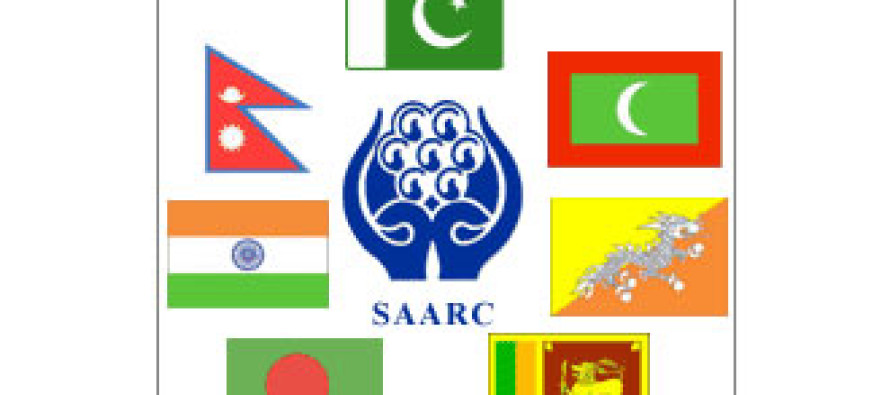Post-Mortem of the SAARC Declaration at the Maldives

U.S. Democratic politician, Vice President Walter Mondale, during the 1984 Democratic presidential nomination at a televised debate, told the rival Gary Hart, “When I hear your new ideas, I’m reminded of that ad, Where’s the beef?” That means there is no beef in hamburger which in other words imply the main ingredient is missing from the food product.
When one reads the 20-point Saarc Declaration, similar sentiment like that of Mondale comes out. That means where is the substance in the Declaration?
The leaders did neither agree on any regional projects on key areas such as, poverty alleviation, energy, water management, climate change nor have they demonstrated regional solidarity.
The leaders have ignored many of the subjects suggested by the Saarc Chamber of Commerce and Industries which met in April in Nepal and proposed 9-point recommendations to the Saarc Summit.
The 9-point included declaration of Saarc Investment Year of 2012, opening of a SAARC TV channel, introduction of easy multiple visa including expansion of ‘SAARC visa sticker’, and establishment of Saarc Disaster Institute. The Saarc Declaration did not mention any of the subjects. A united position could have been taken for the Durban UN Conference of Climate Change.
It is good to note, however, that in paragraphs 3 (Trade fair in Maldives), 4, (connectivity), 8 (Food Bank) and 18, (role of observers) of the Declaration, some time- frame has been mentioned to complete the process. The rest paragraphs of the Declaration speak primarily of only wishes and intentions to be followed by more endless talks and meetings at the technical level.
The theme of the Maldives summit was “building bridges” but instead of building bridges, wide gaps have appeared among the member countries. They are as follows:
It is reported that differences appeared on many issues, such as elevation of Saarc Secretary General to a status of a Minister, 2% of national income to be spent on renewable energy, and admission of Turkey as an observer.
Another underlying reason has been the perception between India and Pakistan to the direction Saarc is going in. India does not want Pakistan and its friends to dominate as observers while Pakistan does not want domination of India in Saarc. India, according to Pakistan, has aligned Saac members, Bhutan, Bangladesh Nepal, Sri Lanka, Maldives and Afghanistan to its fold. Pakistan brought China as an observer to Saarc.
India reportedly was not comfortable when China was admitted as an observer and to counter this, some observers say India brought in Japan and South Korea. In 2005 Afghanistan was admitted to the organization reportedly at the initiative of India. Again at the initiative of India at the 15th summit in Colombo, a moratorium of admission of observers was adopted.
Another tension between India and Pakistan has been growing in recent times relating to Afghanistan. The growing closeness between India and Afghanistan has incensed Islamabad because the government and military establishment has long considered Afghanistan its own strategic asset to offset the perceived threat from India in the east.
Pakistan has long feared if India could obtain more influence in Afghanistan, it would raise the specter of encirclement of Pakistan. It is reported that the bilateral meeting at the Maldives between President Karzai of Afghanistan and Prime Minister Yusuf Raja Gilani of Pakistan ended in a fractious atmosphere.
It is not surprising that tension between India and Pakistan was first revealed during the birth of the Saarc, proposed by Bangladesh around 1978.
Only India and Pakistan had reservations on Bangladesh’s proposal of setting up of a regional organisation and their concern initially related to the motivations of Bangladesh to create such a forum. Was Bangladesh playing a second fiddle to another country?
India thought that Bangladesh allowed itself to be a proxy for Pakistan to contain the influence of India in the region while Pakistan imagined that Bangladesh played into the hands of India to dominate the region.
At the Maldives summit, Bangladesh’s relations with Pakistan turned a bit sour when reportedly Pakistan informally raised the issue of Bangladesh’s objection to WTO on EU trade concessions to Pakistan which would help Pakistan overcome the devastation from the floods.
The offer from the European Union would allow the import of 75 Pakistani items (out of which 65 were textile items) to EU for a three-year period. The WTO works by consensus and the EU required all WTO members to consent to the EU proposal.
India, Bangladesh and Sri Lanka had initially objected to the EU trade concession to Pakistan. Bangladesh’s objection seems to have been based on the ground that since it enjoys duty free market access to the EU on account of being Least Developed Country (LDC), exporting about 56% of its textile products to the EU, concession to Pakistan may harm its garment sector.
While India and Sri Lanka reportedly lifted their objections, Bangladesh’s remained. .Bangladesh wants EU to assist Pakistan in some other way and EU should not confuse flood assistance and trade. Pakistan is not a LDC and is a grower of cotton. This advantage has an edge over Banglagesh on garment sector.
Dr Mirza Ikhtiar Baig, Adviser to Pakistan government on textile, has regretted Bangladesh’s objection to WTO on EU trade concessions to Pakistan, says a Pakistan government press release issued on 10th November.
Finally, Saarc’s progress depends on removal of old mind-set from historical legacies, differences and disputes. In Maldives they failed to demonstrate the unity of purpose.
In every regional grouping, one or two countries would take a robust role in making it work (Indonesia and Malaysia in ASEAN and France and Germany in the EU). India, being the largest country, has failed to take vigorous efforts in turning SAARC into a dynamic organisation.
It is high time that the leaders should get their act together for the benefit of people of the region.
By Barrister Harun ur Rashid
Former Bangladesh Ambassador to the UN, Geneva.


